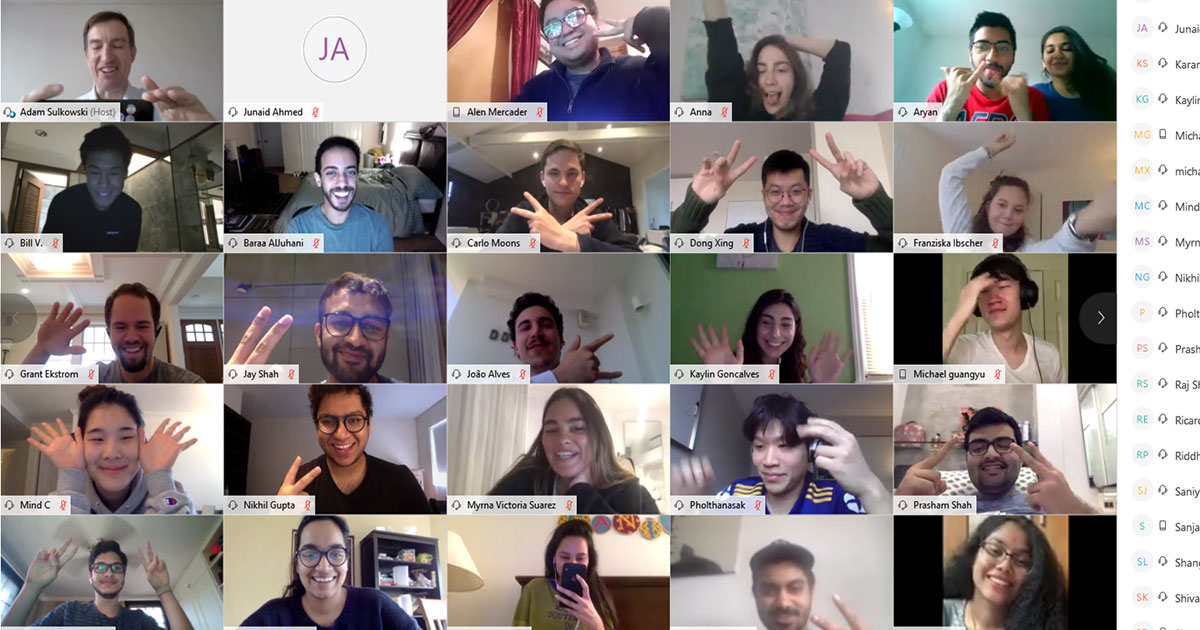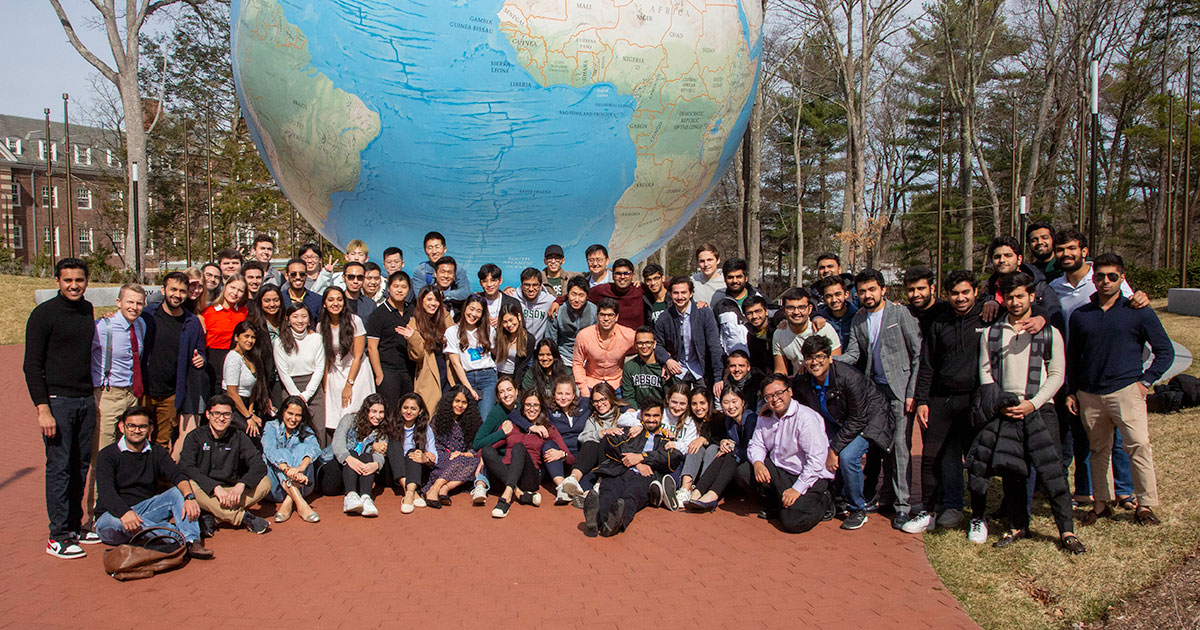The MSEL Program Carries On

How do you complete consulting projects when the businesses you’re working with are temporarily closing their doors?
How do you make prototypes for your startup venture when you and your team can no longer meet in person?
And how do you maintain a sense of community when all of your classmates have returned to their homes around the world?
These are just some of the pressing questions facing the students in Babson’s Master of Science in Management in Entrepreneurial Leadership (MSEL) program. A close-knit group that is used to gathering together and collaborating, MSEL students have been forced to find new ways to be a community, now that the coronavirus outbreak has caused Babson’s educational offerings to migrate online.
“The resilience of MSEL is astounding, even though the outbreak has affected us deeply,” says Alen Mercader MS’20. “The bond we’ve created is very strong as an MSEL cohort. Now, we have to find new ways to bring back that old bond. It’s already there. We just have to find new ways to talk and collaborate, to revive that old sense of solidarity.”

To do that, MSEL students have had increased interactions with professors and relied more and more on online tools such as Google Hangouts and WhatsApp. They’ve also embraced openness in communicating the issues they’re facing. “We emphasize that you are not alone,” says Mercader, one of four MSEL students who serve as student representatives for the program. “We are all just one call away.”
Beyond that, they’ve turned to their own ingenuity and creativity to see them through the weeks ahead.
What Next?
When Babson announced that in-person courses and activities were ending on campus, the students of MSEL, like many in the College community, took the news hard. With a focus on experiential learning and the entrepreneurial mindset, MSEL is only a nine-month program, so students would be losing their precious final months of face-to-face interaction. “I remember that some of us were crying and calling our families. Many were in a state of shock,” says Mercader.
A meeting of the MSEL group with faculty the next day was somber and quiet, remembers Mercader. But then a classmate spoke out, saying the group needed to use the time more productively. He asked a critical question: What are we going to do next? “I love how solutions oriented the MSEL cohort is,” says Mercader.
“The resilience of MSEL is astounding, even though the outbreak has affected us deeply.”
Alen Mercader MS’20
Of the roughly 80 students in the MSEL, only about 30 remained in the Boston area. The rest dispersed, returning to their homes around the world. That meant the first day of virtual classes made for a cheerful reunion. “We were all so happy to see each other on screen,” Mercader says.
But while they may have been back together, at least virtually, critical challenges remained.
Be Creative
Two of the prominent features of the MSEL program are the consulting project, in which students advise organizations on business issues, and the Leading Entrepreneurial Action Project, or LEAP, in which teams develop ventures. Both of these assignments were made a lot more difficult with the coronavirus outbreak.
Testing a prototype, for instance, is not easy when all of your potential users are in quarantine. Even building that prototype in the first place is hard when team members can’t meet to work on it. Despite the hindrances, though, professors told MSEL students to stay the course. “It’s clear that the professors don’t want us to pivot our ideas,” says Mercader. “They encourage us to be more creative in working around limitations.”
For Mercader’s consulting project, that has meant helping a retail outlet with its online channel rather than focusing on its brick-and-mortar store, as was originally planned. For LEAP, he and his team are focusing on building a digital platform, including the product’s branding, rather than prototyping a physical product.
Whenever Mercader and his fellow students run into trouble, they are always quick to reach out to one another. “If someone has a problem, others chime in with solutions,” says Mercader. “We as a cohort are willing to help each other.”
Posted in Community




